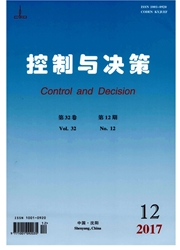

 中文摘要:
中文摘要:
通过构建供应商和制造商两级低碳供应链Stackelberg博弈模型,得到博弈均衡解和收益共享契约参数,比较分散决策、集中决策和收益共享契约下实现低碳供应链的经济效应,并通过算例分析了是否合作减排以及合作减排对供应链成员产量、碳减排量、利润的影响和收益共享契约参数对供应链成员利润的影响,为供应链上下游企业开展碳减排合作提供了理论依据和政策建议.
 英文摘要:
英文摘要:
Through constructing a Stackelberg game model between the supplier and the manufacture, the game equilibrium solution and the revenue sharing contract parameters are obtained. Then a comparison of low-carbon economic effects among decentralized decision-making, centralized decision-making and revenue sharing contract is conducted. Through a numerical example, it is analyzed whether the supply chain can choose cooperation on carbon emission and what impacts will it have on product yield, carbon emission yield and profits of the low-carbon supply chain members, and how the revenue sharing contract parameters influence the profits of low-carbon supply chain. The theoretical basis and policy suggestions are provided for long term cooperation of emission reduction in the supply chain.
 同期刊论文项目
同期刊论文项目
 同项目期刊论文
同项目期刊论文
 期刊信息
期刊信息
